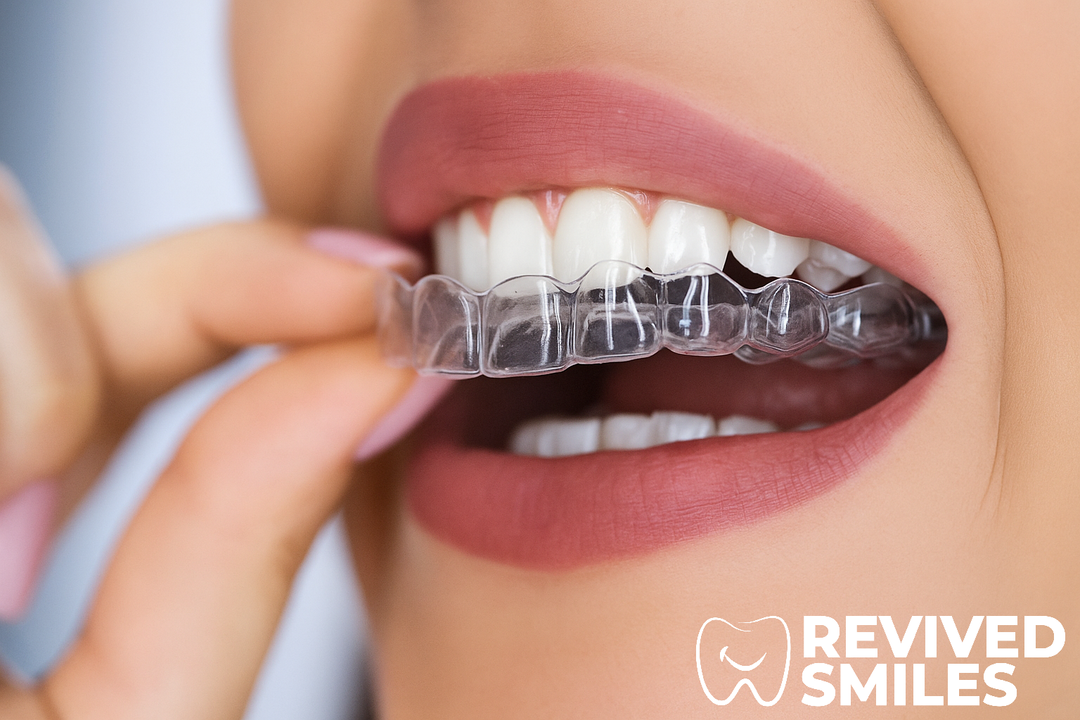¿Cuánto duran las carillas? Todo lo que necesitas saber

Una sonrisa segura puede cambiarlo todo: tu primera impresión, tu autoestima e incluso tus interacciones cotidianas. Las carillas dentales , también conocidas como Las carillas del color del diente son una de las formas más efectivas de mejorar su sonrisa, pero antes de invertir, es natural preguntarse, ¿cuánto duran las carillas?
La realidad es que las carillas no duran para siempre. Pero con el cuidado y la atención adecuados, pueden mejorar su sonrisa durante muchos años. Tanto si está considerando usar carillas como si ya las tiene, comprender su vida útil promedio, cómo mantenerlas y cuándo reemplazarlas le ayudará a aprovechar al máximo su inversión dental.
Aquí encontrará todo lo que necesita saber sobre las carillas, desde las del color del diente hasta la higiene bucal, consejos prácticos de mantenimiento y cuándo programar una visita con su dentista cosmético.
Introducción a las carillas
Las carillas dentales, comúnmente conocidas como carillas dentales, son láminas delgadas del color del diente diseñadas para cubrir la superficie frontal de los dientes, mejorando instantáneamente su sonrisa y protegiendo sus dientes naturales de daños mayores.
Estas carillas personalizadas son un pilar de la odontología estética, ofreciendo una solución para quienes buscan mejorar la apariencia de sus dientes. Los dos tipos principales de carillas son las de porcelana y las de composite.
Las carillas de porcelana son especialmente populares debido a su durabilidad y apariencia natural, imitando de cerca el aspecto y la sensación del esmalte dental real.
Con el cuidado adecuado, las carillas de porcelana pueden durar hasta 15 años, mientras que las carillas compuestas suelen durar entre 5 y 7 años.
Comprender los conceptos básicos de las carillas le ayudará a tomar decisiones informadas sobre su sonrisa y le garantizará aprovechar al máximo su inversión en odontología cosmética.
Por qué es importante la vida útil de las carillas
Las carillas requieren un cuidado minucioso, empezando por comprender su longevidad. La vida útil promedio de las carillas es de entre 5 y 15 años, influenciada por diversos factores como el tipo de material, los hábitos personales y la salud bucal.
La mayoría de los pacientes necesitarán reemplazar sus carillas en algún momento, ya que esto es una parte típica de la experiencia de las carillas y el cronograma de mantenimiento.
Conocer este cronograma le ayudará a planificar posibles reemplazos y a evitar costos inesperados. Además, garantiza que sus carillas mantengan su aspecto y tacto naturales, manteniendo su sonrisa sana y hermosa.
Con la planificación adecuada, podrá disfrutar de su nueva sonrisa durante años y maximizar su inversión en odontología cosmética.
Odontología cosmética y carillas
La odontología estética ha transformado la forma en que las personas logran la sonrisa de sus sueños, y las carillas son clave en esta evolución. Las carillas son una solución versátil para corregir diversos defectos dentales, como decoloraciones, astillas y espacios, brindándole una sonrisa más uniforme y atractiva.
Un dentista cosmético experto evaluará sus necesidades y le recomendará el tipo de carilla más adecuado, ya sean de porcelana, de composite o una combinación de ambas, para sus objetivos. Mantener una buena higiene bucal y visitar a su dentista con regularidad son esenciales para mantener sus carillas y su salud bucal en óptimas condiciones.
Cuando se combinan con otros tratamientos de odontología cosmética, las carillas pueden ser parte de un cambio de imagen integral de la sonrisa que aumenta su confianza y favorece la salud bucal a largo plazo.
Vida útil promedio de las carillas
Entonces, ¿cuánto duran las carillas? Depende del material y del cuidado que reciban.
Generalmente, las carillas duran entre 5 y 15 años. Las carillas de porcelana suelen tener mayor resistencia a las manchas y una vida útil más larga que las de composite, especialmente si se complementan con una buena higiene bucal y una colocación profesional.
He aquí una breve descripción general:
-
Carillas de porcelana: 10 a 15 años, a veces más, con un excelente cuidado
-
Carillas de resina compuesta: de 4 a 8 años y, a menudo, es necesario reemplazarlas antes que las carillas de porcelana debido a las propiedades de sus materiales.
-
Carillas sin preparación: similares a las de porcelana, pero varían según su mordida y salud bucal.
¿Qué afecta la duración de las carillas?
No hay una respuesta universal porque la duración de las carillas depende de cómo las cuides.
Varios factores pueden prolongar o acortar su vida útil:
-
Material: La porcelana es más duradera y resistente a las manchas que la resina compuesta.
-
Higiene bucal: Cepíllese los dientes dos veces al día, use hilo dental regularmente y elija una pasta de dientes no abrasiva.
-
Hábitos: Evite morder objetos duros como hielo o caramelos. Rechinar los dientes también puede dañar las carillas, por lo que es importante abordar este riesgo.
-
Hábitos de estilo de vida: el consumo frecuente de café o tabaco y otras rutinas diarias pueden afectar la longevidad de sus carillas.
-
Dientes como herramientas: No utilice los dientes como herramientas para abrir paquetes o morder objetos duros, ya que esto puede astillar o agrietar las carillas.
-
Salud dental: Afecciones como enfermedades de las encías o pérdida de dientes pueden afectar el rendimiento de las carillas.
Su dentista podría recomendarle un protector bucal nocturno a medida para proteger contra la presión excesiva al apretar o rechinar los dientes. Un protector bucal puede ayudar a proteger las carillas del daño causado por el rechinamiento de dientes, especialmente por la noche.
Tipos de carillas y su longevidad
Carillas de porcelana
Las carillas de porcelana se encuentran entre las más populares en odontología estética. Se asemejan mucho al esmalte dental natural y son muy resistentes a las manchas. Con un cepillado regular y limpiezas profesionales, las carillas de porcelana pueden durar fácilmente más de una década.
-
Vida útil esperada: 10 a 15 años
-
Con un cuidado excepcional, algunos pueden durar incluso más.
Carillas de resina compuesta
Las carillas de composite son una opción más económica y se pueden aplicar en una sola cita. Si bien ofrecen una buena estética, son más propensas a mancharse, astillarse y sufrir desgaste general.
-
Esperanza de vida: 4 a 8 años
-
Puede necesitar retoques más frecuentes en comparación con la porcelana.
Carillas sin preparación
Las carillas sin preparación ofrecen un enfoque menos invasivo y se adhieren directamente al diente con poca o ninguna remodelación. Si bien muchas están hechas de porcelana, su durabilidad depende más de la mordida y los hábitos de higiene bucal de cada persona.
-
Vida útil esperada: 10 a 15 años
-
Ideal para pequeñas mejoras cosméticas.
Colocación y procedimiento de carillas dentales
El proceso de colocación de carillas dentales implica varios pasos precisos para garantizar un resultado hermoso y duradero. Todo comienza con una consulta, donde su dentista cosmético evaluará su salud bucal y hablará sobre sus expectativas para su nueva sonrisa.
A continuación, se retira con cuidado una pequeña cantidad de esmalte, generalmente unos 0,5 mm, de la superficie del diente para dejar espacio para la carilla. Se toman impresiones de los dientes y se envían a un dentista. Laboratorio dental , donde se elaboran sus carillas personalizadas para que coincidan con sus dientes naturales.
Una vez listas, las carillas se adhieren cuidadosamente a sus dientes utilizando un adhesivo fuerte, lo que garantiza un ajuste seguro y una apariencia natural y perfecta.
La colocación adecuada y la unión experta son cruciales para la longevidad y el éxito de sus carillas, por lo que es importante elegir un dentista cosmético con experiencia en este procedimiento especializado.
Beneficios y ventajas de las carillas
Las carillas ofrecen una variedad de beneficios que las convierten en una opción popular para quienes buscan mejorar su sonrisa. Una de las mayores ventajas es su capacidad para transformar la apariencia de sus dientes, brindando un aspecto natural y radiante que se integra perfectamente con sus dientes existentes.
Las carillas de porcelana son especialmente valoradas por sus propiedades resistentes a las manchas en la superficie y su larga durabilidad, lo que las convierte en una excelente opción para quienes buscan una solución a largo plazo y de bajo mantenimiento.
Las carillas también ayudan a proteger los dientes de daños adicionales, reduciendo el riesgo de caries y sensibilidad. Con un cuidado adecuado, que incluye cepillado regular, uso de hilo dental y limpiezas profesionales, las carillas pueden durar muchos años, lo que las convierte en una inversión inteligente tanto para su salud bucal como para su autoestima.
Costo y valor de las carillas
El costo de las carillas puede variar según el material, la complejidad del caso y la ubicación. Las carillas de porcelana suelen ser más caras que las de composite, pero ofrecen mayor durabilidad y una apariencia más natural, lo que las convierte en una inversión rentable para muchos pacientes.
Aunque el costo inicial pueda parecer considerable, las carillas pueden ahorrarle dinero a largo plazo al reducir la necesidad de futuros tratamientos dentales y brindar mejoras duraderas a su sonrisa. Con el cuidado adecuado, las carillas de porcelana pueden durar de 10 a 15 años o más, brindando un valor a largo plazo para su salud bucal y bienestar general.
Consultar con un dentista cosmético le ayudará a determinar la mejor opción para sus necesidades y presupuesto. Muchas clínicas ofrecen planes de financiamiento para que las carillas sean más accesibles. Al elegir un dentista de confianza y materiales de alta calidad, podrá disfrutar de una sonrisa hermosa y segura que perdurará en el tiempo.
Señales de que es necesario reemplazar las carillas
Incluso las carillas de la más alta calidad se desgastan con el tiempo. Reconocer los síntomas a tiempo puede ayudarle a evitar complicaciones. Las carillas dañadas deben ser evaluadas por un profesional dental para determinar la mejor opción de reparación o reemplazo.
Buscar:
-
Astillas o grietas, a menudo causadas por masticar alimentos duros o usar los dientes para abrir elementos.
-
Decoloración, especialmente común con carillas compuestas.
-
Carillas sueltas, lo que puede indicar un debilitamiento del cemento adhesivo.
-
Recesión de las encías que revela el borde de la carilla y altera el aspecto natural.
-
Sensibilidad o incomodidad, que podría significar daño en el esmalte debajo de la carilla.
Si presenta alguno de estos síntomas, visite a su dentista lo antes posible. Si es necesario reemplazar las carillas, su dentista retirará con cuidado la carilla vieja para evitar dañar el diente subyacente. Tras la extracción, se confeccionará y adherirá una nueva carilla para restaurar la apariencia y la función del diente.
Cómo mantener las carillas para obtener resultados duraderos

A Para aprovechar al máximo sus carillas , es fundamental un cuidado constante. Estos hábitos pueden ayudar a prolongar su vida útil:
Cepíllese los dientes dos veces al día
Use un cepillo de dientes de cerdas suaves y pasta dental con flúor. El cepillado regular ayuda a eliminar las manchas superficiales de las carillas.
Use hilo dental diariamente
Mantenga la línea de las encías limpia y reduzca la acumulación de placa.
Evite morder objetos duros
Evite cosas como hielo, bolígrafos o cáscaras de nueces.
Use un protector nocturno si rechina los dientes
Proteja sus carillas del estrés y el desgaste.
Utilice un enjuague bucal sin alcohol
Conservar la resistencia del cemento de unión.
Evite los productos de tabaco y los alimentos que manchan.
El tabaco y ciertos alimentos pueden decolorar y dañar las carillas, especialmente las de composite. Dejar o reducir el consumo de tabaco también reduce el riesgo de enfermedades periodontales y complicaciones con las restauraciones dentales.
Visita a tu dentista regularmente
Manténgase al tanto de las limpiezas profesionales y la detección temprana.
Con estos sencillos pasos, sus carillas pueden conservar su aspecto natural durante muchos años.
Cuándo consultar a su dentista sobre las carillas
El cuidado regular es vital, pero también lo es saber cuándo buscar ayuda. Si sus carillas se sienten incómodas, parecen dañadas o simplemente no se ajustan como antes, quizás sea hora de una revisión.
En algunos casos, su dentista puede realizar pequeños ajustes. En otros, podría ser necesario un reemplazo.
Las visitas regulares permiten una intervención temprana y garantizan que sus carillas permanezcan firmemente en su lugar.
Carillas permanentes vs. carillas temporales
Las carillas temporales suelen usarse entre citas para proteger los dientes mientras se colocan las permanentes. Además, te dan una idea de cómo lucirá tu nueva sonrisa.
Las carillas permanentes, hechas de porcelana o resina compuesta, están diseñadas para un uso a largo plazo y deberían durar muchos años con el cuidado adecuado.
Si buscas belleza duradera y resistente, las carillas permanentes son la mejor opción.
Cómo elegir las mejores carillas para obtener resultados duraderos
Para obtener el mejor resultado, elija carillas de porcelana de alta calidad colocadas por un dentista cosmético experimentado.
Las técnicas avanzadas, como el Diseño Digital de Sonrisa, permiten a los pacientes obtener una vista previa de sus nuevas carillas antes de que comience el tratamiento.
Seleccione materiales que se asemejen al esmalte natural de los dientes, ofrezcan una gran resistencia a las manchas y un ajuste cómodo y seguro. Una colocación correcta influye enormemente en la duración de sus carillas.
En Revived Smiles, nos centramos en la calidad y la artesanía excepcionales, tal como lo hacemos con nuestras dentaduras postizas parciales flexibles y nuestra colección de dentaduras postizas completas .
Conclusión: Una sonrisa duradera comienza con un cuidado inteligente
Una sonrisa brillante y segura es posible con carillas, pero su longevidad depende de tus hábitos y cuidados.
El cepillado diario con un cepillo de dientes de cerdas suaves, el uso de hilo dental, los controles de rutina y evitar sustancias agresivas como el bicarbonato de sodio o productos demasiado abrasivos ayudarán a proteger sus carillas.
Ya sea que esté explorando las carillas por primera vez o esté planeando reemplazar las más antiguas, la clave para obtener resultados duraderos es un enfoque proactivo del cuidado bucal .
Preguntas frecuentes
¿Las carillas duran toda la vida?
Normalmente no. ¿Cuánto duran las carillas de porcelana? Pueden durar de 10 a 20 años, pero con el tiempo es necesario reemplazarlas.
¿Con qué frecuencia es necesario reemplazar las carillas?
La mayoría de las carillas se reemplazan cada 10 a 15 años. Las de composite pueden necesitar reemplazarse antes.
¿Qué tipo de carillas duran más?
Las carillas de porcelana generalmente duran más tiempo, especialmente cuando se combinan con mucho cuidado.
¿Qué pasa cuando las carillas se desgastan?
Podría notar manchas, astillas o molestias. Su dentista las evaluará y las reemplazará si es necesario.
¿Las carillas de porcelana duran más que las de composite?
Sí, la porcelana generalmente ofrece mayor durabilidad y resistencia a las manchas.
¿Cómo puedo hacer que mis carillas duren más tiempo?
Practique una buena higiene bucal , evite masticar objetos duros, use un protector nocturno y use pasta de dientes no abrasiva y productos de cuidado bucal suaves.
¿Cómo saber cuándo es necesario reemplazar las carillas?
Busque señales como grietas, cambios en las encías o un ajuste flojo. Si nota algo extraño, consulte a su dentista.
¿Se utiliza anestesia local durante la preparación de las carillas?
Sí, normalmente se utiliza anestesia local durante la preparación de las carillas. Esto ayuda a minimizar las molestias cuando el dentista raspa una fina capa de esmalte del diente. El procedimiento es seguro, rápido y la mayoría de los pacientes experimentan poco o ningún dolor.
Una sonrisa brillante y segura es posible con carillas, pero su longevidad depende de tus hábitos y cuidados.
El cepillado diario con un cepillo de dientes de cerdas suaves, el uso de hilo dental, los controles de rutina y evitar sustancias agresivas como el bicarbonato de sodio o productos demasiado abrasivos ayudarán a proteger sus carillas.
Ya sea que esté explorando las carillas por primera vez o esté planeando reemplazar las antiguas, la clave para obtener resultados duraderos y Revived Smiles es un enfoque proactivo para el cuidado bucal.





Dejar un comentario